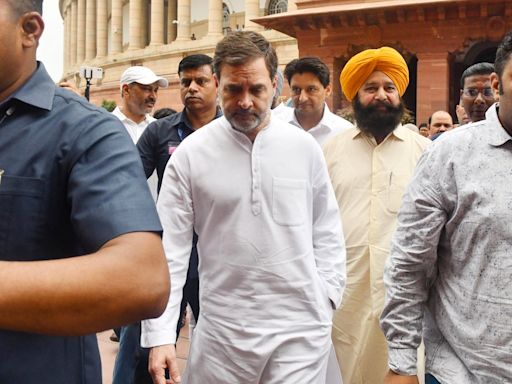Search results
Shiva (/ ˈ ʃ ɪ v ə /; Sanskrit: शिव, lit. 'The Auspicious One', IAST: Śiva), also known as Mahadeva (/ m ə ˈ h ɑː ˈ d eɪ v ə /; Sanskrit: महादेव:, lit. 'The Great God', IAST: Mahādevaḥ, [mɐɦaːd̪eːʋɐh) or Hara, is one of the principal deities of Hinduism.
Jun 25, 2024 · Shiva, one of the main deities of Hinduism, whom Shaivites worship as the supreme god. Among his common epithets are Shambhu (’Benign’), Shankara (’Beneficent’), Mahesha (’Great Lord’), and Mahadeva (’Great God’). Learn more about Shiva in this article.
Meet the whiz kid Shiva, who lives in a city named Vedas. Watch him fight the villains who are out to damage the city on his super bike that can fly as well ...
Shiva begins immediately following the burial and lasts for seven days, ending after the morning service on the seventh day. Shiva is not observed on the Sabbath (Friday at sundown through Saturday at sundown) or on holidays.
Shiva refers to both “that which is not,” and Adiyogi because in many ways they are synonymous. Explore the stories and legends that surround this most prominent figure of Indian spiritual traditions.
May 10, 2018 · Shiva (Siva) is one of the most important gods in Hinduism and a member of the holy trinity (trimurti) with Brahma and Vishnu. Shiva is a complex character who may represent goodness and benevolence...
Aug 24, 2009 · Worshippers of Shiva celebrate Mahashivratri, a festival at which the Shiva linga is bathed in water, milk and honey and worshipped. Who is he linked with? Shiva's consort is Devi, the...
Dec 19, 2016 · Shiva is one of the three supreme gods found in Hindu mythology. He is known as the destroyer while the other gods are the creator (Brahma) and the preserver ( Vishnu ). While the other gods are responsible for the creation and perseverance of the earth, Shiva must destroy it in order to recreate it.
May 24, 2024 · The Shiva Linga, a symbol of Lord Shiva in Hinduism, is considered a powerful representation of all cosmic energies and is central to worship in Shiva temples.
Jan 18, 2019 · Shiva is 'shakti' or power; Shiva is the destroyer—the most powerful god of the Hindu pantheon and one of the godheads in the Hindu Trinity, along with Brahma and Vishnu. As recognition of this fact, Hindus isolate his shrine separate from those of other deities in the temple.
Jul 21, 2020 · Shiva meaning and origins. Shiva, also known as Siva, the Destroyer or the auspicious one, is one of the most important and best-known deities in Hinduism. He is venerated as the god of rebirth, destruction, benevolence and protection ; and he is often revered as one of the deities in the Hindu trinity (trimurti).
Jan 28, 2024 · Shiva, one of the principal deities in Hinduism, is a complex and multifaceted figure whose significance extends far beyond the bounds of religious worship. Revered as the god of destruction and transformation, Shiva plays a pivotal role in the intricate tapestry of Hindu mythology and spirituality.
May 29, 2018 · Shiva, the destroyer, is one of the three supreme gods in Hindu mythology. The other two are Brahma, the creator, and Vishnu, the preserver. Shiva's destructive powers are awesome, but they also have a positive side in that destruction usually leads to new forms of existence. In art, Shiva is often portrayed with four arms, four faces, and ...
Feb 23, 2014 · What’s the meaning of the snake around Shiva’s neck? Why does he have a moon on his head? What is the significance of all this symbolism? In the third part of the series “Getting to Know Shiva,” yogi and mystic, Sadhguru, takes a look at the adornments and symbols
Sadhguru looks at 10 different forms of Shiva from the yogic lore, and explains what they each represent. Find out about dynamic Nataraja, fearsome Kalabhairava, childlike Bholenath and more! Why Mahashivrathri
Shiva or Mahadeva is the supreme god in Shaivism tradition in Hinduism and one of the chief deities as a member of the Trimurti. Shiva is causeless auspiciousness. Shiva is known as the Maha Rudra (the master of all Rudras). Shiva is an embodiment of ultimate space of enlightenment.
The word "shiva" has different meanings across different cultures and in Hebrew it means "seven." Shiva, as it relates to Jewish mourning, is the seven-day mourning period for the immediate family of the deceased which consists of spouse, child, parent or sibling.
Learn the traditions and customs of shiva, making a shiva call and contributing to a shiva. Shiva.com can help you learn about Jewish mourning rituals, what to bring or send, and the appropriate and customary shiva and sympathy gifts.
SHIVA OFFICIAL YOUTUBE CHANNEL. Management & Booking : info@shivaofficial.it Instagram : @fuckshiva
Apr 30, 2018 · Meet the whiz kid Shiva, who lives in a city named Vedas. Watch him fight the villains who are out to damage the city on his super bike that can fly as well ...
The Mourning Pattern (Sitting Shiva) Judaism, with its long history of dealing with the soul of man, its intimate knowledge of man's achievements and foibles, his grandeur and his weakness, has wisely devised graduated periods during which the mourner may express his grief, and release with calculated regularity the built-up tensions caused by ...
1 day ago · Leader of Opposition in the Lok Sabha Rahul Gandhi (Sansad TV) Holding a picture of Lord Shiva, Gandhi began his address in the Lok Sabha with “Jai Samvidhan” and said that his message is ...
Shiva is the Hebrew word for “seven,” and shiva traditionally lasts seven days. Some families sit shiva for shorter periods of time, however. Jewish law stipulates that if a family is in financial distress, mourners can return to work after just three days.
Shiva (Hebrew: שִׁבְעָה , romanized: šīvʿā, lit. 'seven') is the week-long mourning period in Judaism for first-degree relatives. The ritual is referred to as "sitting shiva" in English. The shiva period lasts for seven days following the burial.
1 day ago · The Lok Sabha on Monday saw dramatic scenes as Rahul Gandhi used an image of Lord Shiva to criticize the government for its "full-scale assault on the idea of India and the Constitution."




